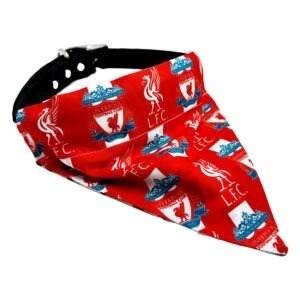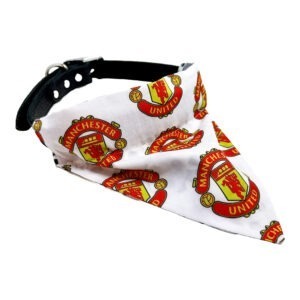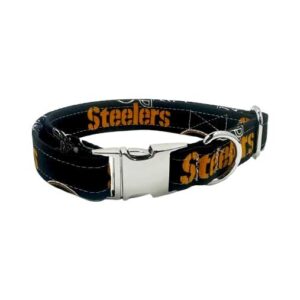The Neapolitan Mastiff, a descendant of the ancient Roman war dogs, is a breed known for its giant size, drooping wrinkles, and loyal demeanor. A member of the Molosser group, they can weigh up to 150 pounds and are characterized by their strong protective instincts, making them excellent guard dogs. However, their massive size also brings unique health considerations, particularly related to diet and exercise.
Providing your Neapolitan Mastiff with the correct nutrition and an adequate amount of exercise can significantly impact their overall health, longevity, and quality of life. This guide will navigate the unique dietary and physical needs of this fascinating breed, from puppyhood to their golden years. By understanding their specific needs and adapting them to your pet’s lifestyle, you can ensure your Neapolitan Mastiff leads a healthy, happy life.
While this guide provides a general understanding, remember that each dog is unique. Therefore, it’s always recommended to consult with a veterinarian or pet nutrition expert for personalized advice.
Some of our latest products...
-
Dog Bandanas
Liverpool FC Dog Bandana
$ 13.19 – $ 16.12 USD Select options This product has multiple variants. The options may be chosen on the product page -
Dog Bandanas
Manchester City Dog Bandana
$ 13.19 – $ 16.12 USD Select options This product has multiple variants. The options may be chosen on the product page -
Dog Bandanas
Manchester United Dog Bandana
$ 13.19 – $ 16.12 USD Select options This product has multiple variants. The options may be chosen on the product page -
Dog Collars
Pittsburgh Steelers Dog Collar
$ 20.52 USD Select options This product has multiple variants. The options may be chosen on the product page
Understanding the Dietary Needs of a Neapolitan Mastiff
The nutritional needs of a Neapolitan Mastiff can vary significantly depending on its age, weight, health status, and lifestyle. Generally, a balanced diet for a Neapolitan Mastiff should include high-quality animal proteins, healthy fats, digestible carbohydrates, and a range of vitamins and minerals.
Protein, derived from quality sources like chicken, beef, or fish, supports muscle development and maintenance, essential for this massive breed. Fat, particularly omega-3 and omega-6 fatty acids, help maintain a healthy coat and support cognitive function. Carbohydrates offer a source of quick energy, but should be easily digestible, such as brown rice or sweet potatoes. Too many carbohydrates can lead to obesity, a problem often seen in large breeds.
As giant dogs, Neapolitan Mastiffs are predisposed to certain health issues such as hip dysplasia, heart conditions, and bloating. Diet plays a crucial role in managing and preventing these issues. For instance, maintaining a lean body weight can ease stress on the joints, reducing the risk of hip dysplasia. Certain heart conditions may be managed with a low-sodium diet.
To prevent bloating, a condition that large breed dogs are particularly susceptible to, it’s beneficial to feed smaller, more frequent meals instead of a large one. Slow-feed bowls can also be used to prevent them from eating too quickly, another risk factor for bloat.
Understanding the specific nutritional requirements of your Neapolitan Mastiff is the first step to ensuring their overall health and longevity. However, given the complex nature of this breed’s health, it’s advisable to seek professional guidance when formulating a diet plan.
Choosing the Right Food for Your Neapolitan Mastiff
Choosing the right food for your Neapolitan Mastiff is a fundamental part of their care. While many commercial dog food brands market themselves as ‘complete and balanced’, it’s essential to scrutinize labels for quality and appropriateness for your dog’s life stage.
A good rule of thumb is to opt for foods that list a high-quality source of animal protein as the first ingredient, such as chicken, beef, or fish. High-quality proteins are more easily digested and utilized by your dog’s body, leading to better overall health. Avoid foods with ambiguous labels like ‘meat by-products’ as they are often low quality.
When it comes to fats, look for sources like fish oil or flaxseed, which are high in beneficial omega-3 fatty acids. Healthy fats are key to maintaining your dog’s skin and coat health and supporting brain function.
For carbohydrates, opt for dog food that includes complex carbs like sweet potatoes or brown rice. Avoid foods with high levels of filler ingredients like corn, wheat, and soy as they can lead to weight gain without providing much nutritional value.
In terms of diet types, raw, commercial, and homemade diets each have their pros and cons. While raw diets can provide unprocessed nutrients, they can be time-consuming to prepare and pose a risk of bacterial contamination if not handled properly. Commercial diets are convenient, but their nutritional value can vary widely. Homemade diets offer control over what your dog eats, but it can be challenging to achieve a balanced diet. Whichever route you choose, it’s advisable to consult a veterinarian or a pet nutrition expert to ensure the diet meets your dog’s needs.
Lastly, consider dietary supplements that could benefit a Neapolitan Mastiff, such as glucosamine for joint health, fish oil for skin and coat health, and probiotics for gut health. Remember, supplements should not replace a balanced diet but should complement it.
Feeding Schedule and Portion Sizes
Neapolitan Mastiffs, like other breeds, have changing dietary needs throughout their lives. Implementing an appropriate feeding schedule and adhering to correct portion sizes can ensure they get the required nutrients without overeating, thus helping to avoid obesity and related health issues.
Puppies: Neapolitan Mastiff puppies grow quickly and require a high-energy diet to support this rapid growth. Feed them a good quality puppy food four times a day until they reach around six months of age. After that, you can gradually decrease their feeding frequency to three times a day.
Adults: From about one year to around seven years of age, your Neapolitan Mastiff is considered an adult. Adult dogs should be fed twice a day. Look for a dog food specifically designed for large breed adults, which is balanced to maintain muscle tone and control weight.
Seniors: As your Mastiff enters its golden years, usually around eight years of age, dietary requirements change again. Seniors often need fewer calories, but higher quality protein to maintain muscle mass. They may also benefit from supplements like glucosamine and chondroitin for joint health.
Remember, Neapolitan Mastiffs are prone to bloat, a potentially life-threatening condition. To help prevent it, avoid exercising them immediately after meals and try feeding them from a raised dish to reduce air intake.
Portion sizes will depend on the size, age, activity level, and health of your dog. A common rule of thumb is 2% to 3% of the dog’s body weight per day, split into two meals. But always check the feeding guidelines on your dog’s food and consult your vet if you’re unsure.
Lastly, while a schedule is important, remember to adjust it based on your dog’s needs. Monitor their body condition and adjust portions or meal frequency as necessary to maintain a healthy weight.
Understanding the Exercise Needs of a Neapolitan Mastiff
Neapolitan Mastiffs are known for their impressive size and muscular build. However, unlike many smaller breeds, they are not high-energy dogs. This breed is generally calm and prefers lounging around rather than participating in high-intensity activities. Nevertheless, a certain level of exercise is essential to maintain their overall health and prevent obesity.
The exercise regimen for Neapolitan Mastiffs should focus on moderate activities that do not put excessive strain on their joints. Daily walks, combined with a short play session, are generally sufficient for this breed. A mature Mastiff might need about an hour of exercise daily, but remember to break this down into smaller, more manageable sessions to prevent them from getting exhausted. A young puppy requires only about five minutes of exercise per month of age, up to twice a day.
Swimming can be another excellent low-impact exercise option for this breed, given that it is introduced properly and safety precautions are taken. Mastiffs tend to enjoy water and swimming exercises their whole body without putting pressure on their joints.
While physical exercise is important, mental stimulation is just as necessary for this intelligent breed. Interactive toys, puzzle feeders, and basic obedience training can help keep their mind sharp.
It’s important to understand that every Neapolitan Mastiff is unique and what works for one may not work for another. Pay attention to your dog’s energy levels, mood, and physical health when planning their exercise routines. Also, be mindful of the weather conditions, as this breed can be sensitive to extreme temperatures.
Creating an Exercise Routine for Your Neapolitan Mastiff
Designing an exercise routine for your Neapolitan Mastiff requires understanding their physical capabilities and limitations. As mentioned earlier, their size makes them prone to joint issues, so low-impact, moderate exercises are ideal. Here’s a guide to creating a suitable routine:
- Daily Walks: Start with daily walks, ideally once in the morning and once in the evening. The length and pace of the walk should be tailored to your dog’s age, health, and energy level. Younger and healthier Mastiffs might enjoy longer, brisk walks, while older ones may prefer a shorter, slower pace.
- Playtime: Incorporate play sessions into your dog’s routine. This could be a game of fetch, hide and seek, or even a leisurely swim. Remember to keep the intensity moderate to prevent any stress on the joints.
- Mental Stimulation: Include puzzle toys, obedience training, or scent work games in the routine. These activities challenge the dog mentally, reducing the likelihood of boredom and destructive behavior.
- Rest and Recovery: After any exercise, give your Mastiff plenty of time to rest and recover. Always have fresh water available to help them rehydrate.
Remember, this is just a guide. Your dog’s exercise needs may change over time due to age, health, and individual preferences. Regular vet check-ups can help you identify any necessary changes early.
Above all, ensure that exercise is a positive experience for your Mastiff. It’s a time to bond with your dog and promote their well-being.
Adjusting Diet and Exercise as Your Neapolitan Mastiff Ages
As your Neapolitan Mastiff grows and ages, their dietary and exercise needs will evolve. Adjusting their routine and diet with these changes can greatly enhance their quality of life.
Puppy to Adult: Puppies typically have a higher energy level and need a diet rich in protein to support their rapid growth. However, it’s crucial not to over-exercise them while their bones and joints are still developing. Keep play sessions short and sweet, avoiding high-impact activities.
When your Mastiff reaches adulthood, their energy levels will stabilize. Gradually adjust their diet and exercise routines to this new stage. They will need a balanced diet with plenty of protein, but fewer calories per pound than puppies.
Adult to Senior: As your Mastiff enters their golden years, they may begin to slow down. Their metabolism also slows, which, coupled with reduced activity, can lead to weight gain. Adjust their diet to a lower-calorie, high-fiber one, which helps maintain weight and supports digestive health.
Senior dogs still need exercise to maintain muscle tone and joint health, but they may not handle intense exercise well. Shorter, more frequent walks and light play sessions are more suitable. Regular vet checks become increasingly important to identify any age-related health problems early.
It’s essential to remember that these are general guidelines. Every dog is unique, and what works for one may not work for another. Regular veterinary care and observation of your dog’s behavior and body condition are invaluable tools to tailor their care to their specific needs.
Conclusion
The Neapolitan Mastiff is a breed that requires careful and conscientious care, especially when it comes to diet and exercise. It’s essential to understand their unique nutritional needs and exercise requirements, as these components significantly impact their overall health and well-being.
We’ve delved into the nutritional needs of the Neapolitan Mastiff at different life stages and discussed the importance of adjusting their diet and exercise routine as they age. We’ve also stressed the importance of quality ingredients and feeding schedules.
Exercise is equally crucial, both for maintaining a healthy weight and for providing necessary mental stimulation. Neapolitan Mastiffs are not the most active breed, but they still benefit greatly from regular, gentle exercise and engaging activities.
Moreover, as your Neapolitan Mastiff ages, their needs will change, and so too should their diet and exercise routine. Regular veterinary check-ups are essential to catch any potential health issues early and to ensure that your dog is thriving on their current diet and exercise regime.
Remember that every Neapolitan Mastiff is an individual, and what works for one may not work for another. Therefore, it’s essential to work with your vet to create a diet and exercise plan tailored to your particular dog’s needs.
Ultimately, a balanced diet and suitable exercise are key ingredients in providing your Neapolitan Mastiff with a happy, healthy life. Invest the time and effort into these aspects of care, and you will have a loyal, loving companion for years to come.
Frequently Asked Questions
How many times a day should I feed my Neapolitan Mastiff?
The feeding frequency for your Neapolitan Mastiff depends on their age. Puppies usually require three to four meals per day, while adults can be fed two meals a day. It’s important to consult with your vet to determine the best feeding schedule for your dog.
Can Neapolitan Mastiffs eat raw food?
Yes, many owners choose to feed their Neapolitan Mastiffs a raw diet. However, if you decide to do this, it’s crucial to ensure the diet is balanced and provides all the nutrients your dog needs. It’s often best to consult with a veterinary nutritionist when creating a raw diet plan.
How much exercise does a Neapolitan Mastiff need?
Despite their size, Neapolitan Mastiffs are not overly active dogs. However, they still require regular exercise to maintain a healthy weight and overall well-being. Usually, a few short walks and a moderate play session each day should suffice.
My Neapolitan Mastiff is gaining weight, what should I do?
Weight gain can lead to various health issues. It might be a sign you are feeding your dog too much or not giving them enough exercise. Consult with your vet, who can help you adjust your dog’s diet and exercise routine.
Can my Neapolitan Mastiff eat the same food as my other dog breeds?
It depends on the nutritional content of the food. If the food meets the specific nutritional requirements of a Neapolitan Mastiff, it might be suitable. However, because of their size and unique health considerations, they usually require a diet targeted at large breed dogs. Always consult with a vet when changing your dog’s diet.





